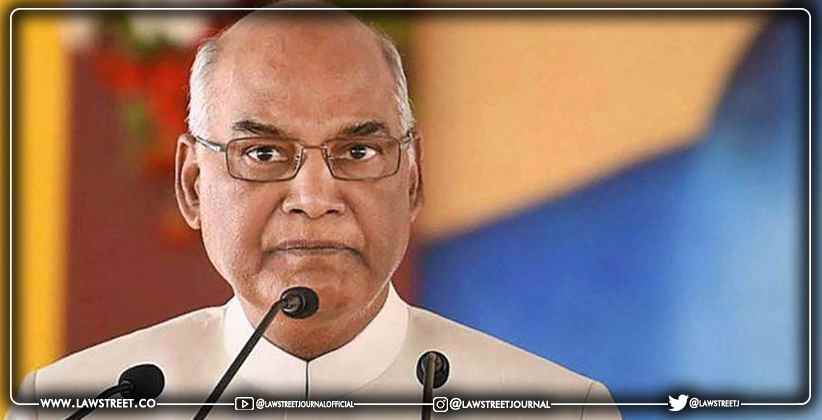President Ram Nath Kovind recently promulgated the Tribunal Reforms (Rationalization and Conditions of Service Reforms) Ordinance, 2021.
Through this Ordinance, the Central Government aims to dissolve the existing Appellate Authorities under 9 Acts and transfers their powers and functions to High Courts.
The statement of objects and reasons of the Bill reads as follows: With a view to streamline, the Tribunal Reforms (Rationalisation and Conditions of Service) Bill, 2021, is proposed to be enacted to abolish certain tribunals and authorities and to provide a mechanism for filing an appeal directly to the commercial court or the High Court, as the case may be.
The Tribunal Reforms (Rationalization and Conditions of Service Reforms) Bill was introduced in Lok Sabha on February 13, 2021, but as the Parliament was not in session the Bill could not be taken up for debate. The President after being convinced that a situation exists that necessitates intervention exercised his power under Article 123(1) of the Constitution and promulgated the Bill on April 4, 2021. The Tribunal Reforms Ordinance was issued by the Ministry of Law and notified on April 4.
The Ordinance has amended the following 9 Acts Copyrights Act 1957, Cinematography Act 1952, Customs Act 1962, Patents Act 1970, Airports Authority of India Act 1994, Geographical Indications of Goods (Registration and Protection) Act 1999, Protection of Plant Varieties and Farmers Rights Act 2001, Trade Marks Act 1999, Control of National Highways (Land and Traffic) Act 2002.
In addition to these 9 Acts, the Ordinance also amends Section 184 of the Finance Act 2017. Section 184. Section 184 empowers the Central Government with the power to make rules for the qualification, appointment, term of office, salaries and allowances, resignation, removal, and other terms and conditions of the Chairperson, President, and other members of the Tribunal, or Appellate Tribunal.
The Ordinance provides that an appointment will be made on the recommendation of Search-cum-Selection Committee which will consist of the Chief Justice of India or a Judge appointed by CJI, along with two secretaries appointed by the Government and one secretary of that department under which the Tribunal is set up. The Committee will also have one member who will be a retired Judge of the Supreme Court or the Chief Justice of the High Court, in case the Tribunal is Industrial Tribunal under Industrial Dispute Act 1947, Tribunals and Appellate Tribunals constituted under the Recovery of Debts Due to Banks and Financial Institutions Act, 1993. The Chairperson of the Tribunal shall hold the office for 4 years or till he attains 70 years of age and other members will hold for 4 years or till he attains 67 years of age.
The Ordinance received backlash from Jairam Ramesh, Congress Chief Rajya Sabha, who called this promulgation a terrible breach of trust. According to him, the government had assured the opposition during the Budget session that the bill to the above effect would be sent to a standing committee for review.
Congress criticized the Centre over the ordinance to dissolve a part of Indias appellate structure without any review and wondered if anything better could be expected from the NDA government.







